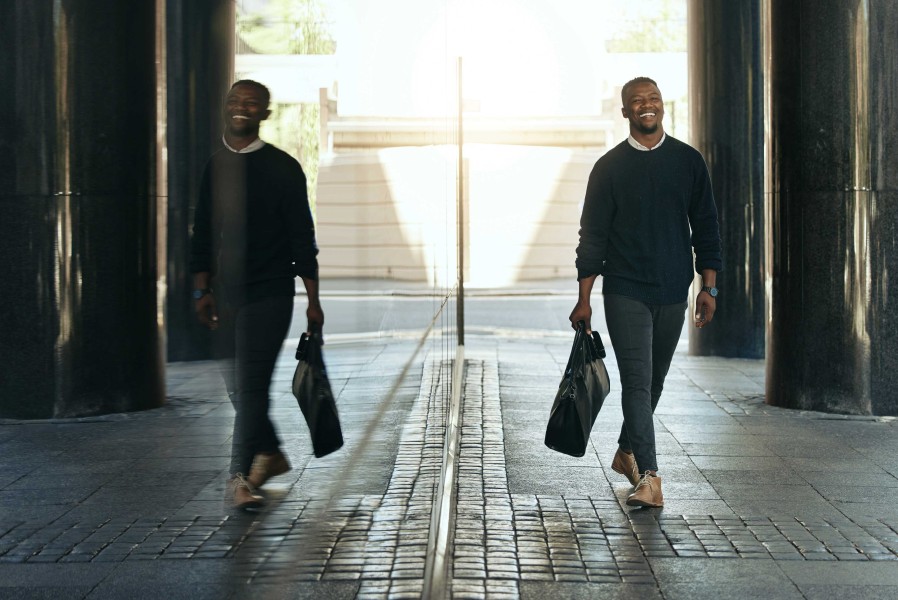Introduction
I’ve just finished a lovely book, “That Peckham Boy,” by Kenny Imafidon. While I haven’t walked in his shoes, I still felt a visceral connection with his beautifully penned narrative. Growing up as a young black male in inner-city London myself (a while ago now) presented its own unique set of challenges, a world where the expectations of society and prejudices can sometimes overshadow one’s potential and aspirations. “That Peckham Boy” is a redemption story (I hope I’m not giving anything away) where Kenny [I don’t personally know him] outlines his manifesto for creating a positive change for those usually forgotten about and typically only mentioned for the wrong reasons. Having traversed my journey growing up, his story allowed me to empathise deeply with the pressure, doubts, and ambitions of navigating your environment; luckily, playing basketball saved me from a life that could have been so different, as Kenny describes. Within the book, a line strikes a chord with me; towards the end, he says, “We judge ourselves by our intentions and others by their behaviours.” I loved that; it’s a quote I had heard from Steven Covey in his book “The Speed of Trust: The One Thing that Changes Everything.” Although different books, in their way, they both highlight our tendency for hypocrisy in our thinking, where we tend to give ourselves the benefit of the doubt based on our intentions. In contrast, we jump to conclusions of others solely based on their actions. I shared my thoughts on that quote and my thinking about a more consistent approach to applying our thinking.
Intentions and Behaviours
In leadership or parenthood, the duality of understanding intentions and behaviours becomes even more crucial. As a leader, if we are to recognise the intentions behind an employee’s actions, it will allow for a more holistic approach to guidance, mentorship, and adjustments to behaviours. It will help to ensure that your feedback is not just reactionary but also proactive, nurturing, and developmental. As parents, comprehending our children’s intentions alongside their actions can foster open communication, understanding, and trust. It helps guide them through the immediate consequences of their actions and cultivate values and moral compasses that will serve them well as they grow.
Furthermore, by considering intentions and behaviours, we can delve deeper into the nuances of our human nature. We start to see that while behaviours are the tangible, visible part of an iceberg, our intentions often remain submerged. By acknowledging and addressing both, we cultivate an environment of mutual respect, empathy, and understanding, enhancing our ability to connect with and support those around us, which is indispensable in roles that demand a deep understanding of people.
Our Hypocrisy of Selective Evaluation
For me, the real challenge lies in our convenient tendency to focus on intentions when looking in the mirror and judging others by their behaviours. Kenny’s brave and unfiltered take on his own experiences highlights our challenge with selectivity. This inconsistency leads to a skewed perception of reality and sometimes hinders our ability to empathise and understand different perspectives. One way of overcoming this tendency is to strive for a more balanced and consistent approach to evaluating the conduct of others, being more mindful of our thoughts and immediate judgements.
Working To Apply Consistency
In the book, Kenny’s journey of growing up, getting out and being able to give back is a powerful example of how one can rewrite one’s story and take responsibility for one’s intentions and behaviours; we do not have to be a product of our environment. We certainly shouldn’t use what we believe our intentions to be as an excuse for unproductive or, at times, harmful actions. Instead, as was demonstrated, we should take responsibility and own our behaviour, apologise when necessary, and be on a constant journey of self-improvement. Therefore, when we assess the behaviour of others, we should step back and consider their intentions and give them the benefit of the doubt, especially where we’ve seen their action not reflect their true character or motives. I’m blessed with three beautiful daughters, and something I stress with them is, “All emotions are okay; however, all behaviours are not.”
To Finish!
“That Peckham Boy” offers a manifesto for introspection and positive change. At the same time, Kenny Imafidon does not ask us for forgiveness; it is an opportunity to recognise the changes he’s made in his life by emphasising both intentions and behaviours in his moving personal evaluation. By working to apply them consistently, we can start to gain a deeper understanding of ourselves and others, foster a greater sense of empathy, and build stronger relationships based on trust and understanding.


